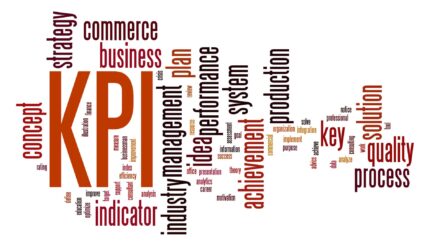If you’re thinking about hiring a business coach, looking at testimonials and case studies will be helpful up to a point. But what you really want to know is not who it did work for, but who it didn’t – and why.
You’ll be on the lookout for the poor reviews – to find out if you’re like that reviewer.
Assuming you pick a good coach with a proven track record, this post is to help you decide if you are likely to get a return on your investment in coaching because the truth is not everyone does. From there, I’ll write a separate post about how to choose the right coach for you.
In this blog, I’ll look at the traits good coaches look for in clients – and also the traits we’re really wary about – by prompting you with the Big 5 Questions you should ask yourself before pressing the button.
Do I want big change?
For you, change might involve moving away from something undesirable or it might be creating something positive. Either way, it needs to be something very different from what you’ve got now.
There are 2 reasons for this.
Firstly, a good coach acts a catalyst for change. It’s in our nature to be impatient with the status quo and to want to build. If you’re happy with the way things are, you’ll be acting as the handbrake to your coach and that’s no fun for anyone.
You might think it inconceivable that someone could decide to hire a coach and not want to change anything significant, but I assure you it can happen.
Also, a big vision of what you want, acts as both a focal point and a motivator.
There will be times when focus and mood wanes. Having a big vision acts as a massive ‘You Are Here’ map to keep you on track.
And this cuts both ways. I’d want my coach to be opening up his diary on a Monday morning and looking forward to our session that week. I’d want them to be excited to be able to play a part in helping me achieve something I’m proud of.
And you should want the same and the right coach for you will be fired up by your big vision.
Am I going to be a ‘completer’?
Some of you may look askance at this one – because it seems to imply that if you follow the coach’s advice you’ll automatically do well. In other words, the ideas you generate with your coach will never be ‘duff’.
There are 2 aspects to this.
Firstly, everyone makes mistakes and sometimes you and your coach will dream up an idea and it’ll fall flat on it’s arse in the execution. (There might well be a ‘law’ about how clever an idea feels and how excited you are about it and the likelihood of it going comically wrong).
But – it is undoubtedly true that commitment to making an idea work is a bigger determinant of success than having the ‘brightest’ idea.
To look it from the other perspective, you could have daily access to quite literally the world’s best business coach – and if you don’t follow through and complete any ideas, you’ll get a 0% RoI.
The no.1 thing I look for in a potential client is someone who I believe will always / invariably do what they say they will.
Do I have a Growth Mindset?
Everything you need to know to solve every problem you have or ever will have in business and in life has already been discovered and put in a book / podcast / TED talk etc.
You’re just not aware of it yet.
The term Growth Mindset is partly to do with your attitude to learning (including but not exclusive to reading books) but it’s more than just that.
It’s about attitude to solutions in general.
Most ideas (or solutions) you could implement will need to be tweaked or ‘personalised’ to some degree before they get results. It is this element of problem-solving that requires you to be especially growth-minded.
There is always a reason to not do things or to give up on an idea that hasn’t worked straight out of the box.
Someone with a Fixed Mindset will give up at that point – whilst a Growth Mindset will see you through to results.
Am I a Reasons person or a Results person?
There are 2 types of people. Or to be more accurate there are 2 choices of attitude.
First are the people who look for Reasons: these people are ‘on red alert’ to find someone or something to blame for the undesirable symptoms in their business. They will always have an excuse to avoid taking responsibility for fixing it – or worst of all are those who just deny there’s an issue at all.
Unless you and your coach can snap you out of this way of thinking, you’ll be wasting your time and money.
Then there are the people who are always looking for Results.
These people come to view problems as challenges and turn the thought ‘It’s not possible’ into ‘It must be possible because other people have done it’.
With a bit of help, these people can be coaxed into a ‘Yes if’ conversation.
‘Is it possible to xxx? Yes if…’
Am I willing to take off my Superman pants?
In countless conversations with other coaches, it’s clear that we all agree on one thing.
Clients who get the best results are those who do the best job of attracting, recruiting, managing, and motivating top talent into their businesses.
These people recognise that good business is a team game.
If you’re content to think that no one can or will do something as well as you; if you genuinely believe that ‘if you want a job doing properly, do it yourself’; if you think no one will ever care as much as you – you become the log-jam in your business.
Yes, you get to be Superman / Superwoman – but you also get to be the bottleneck.
You will be running the race of business with one arm tied behind your back and seriously reducing the impact your business coach can make.
Conclusion.
I’ve tried to differentiate between cause and effect in this blog.
For example, there’s a great correlation in my coaching experience between those clients who embrace the good habit of filling in a learning and commitment sheet after every session and those who get the best results.
But on reflection, I decided this is a micro-behaviour – similar to being on time and prepared for sessions.
As important as these are, they are symptoms of answering ‘no’ to these Big 5 Questions.
Of course, the right business coach for your business will help you identify, tackle and shift these attitudes – and when they do the results can be life-changing.
Want to know how much a business coach should cost? Check out my latest blog here.






Comments